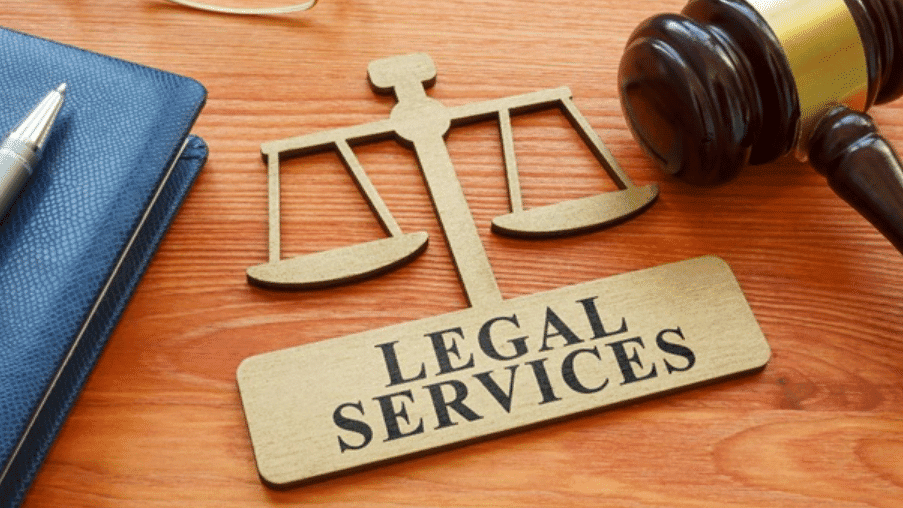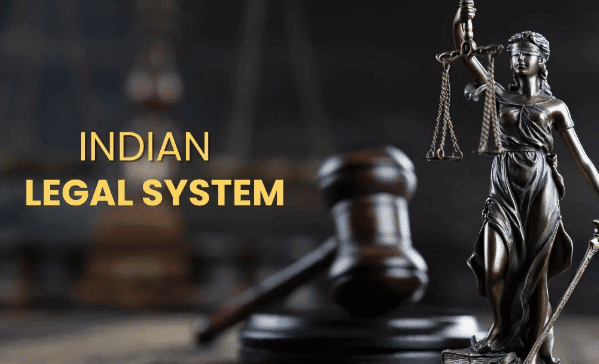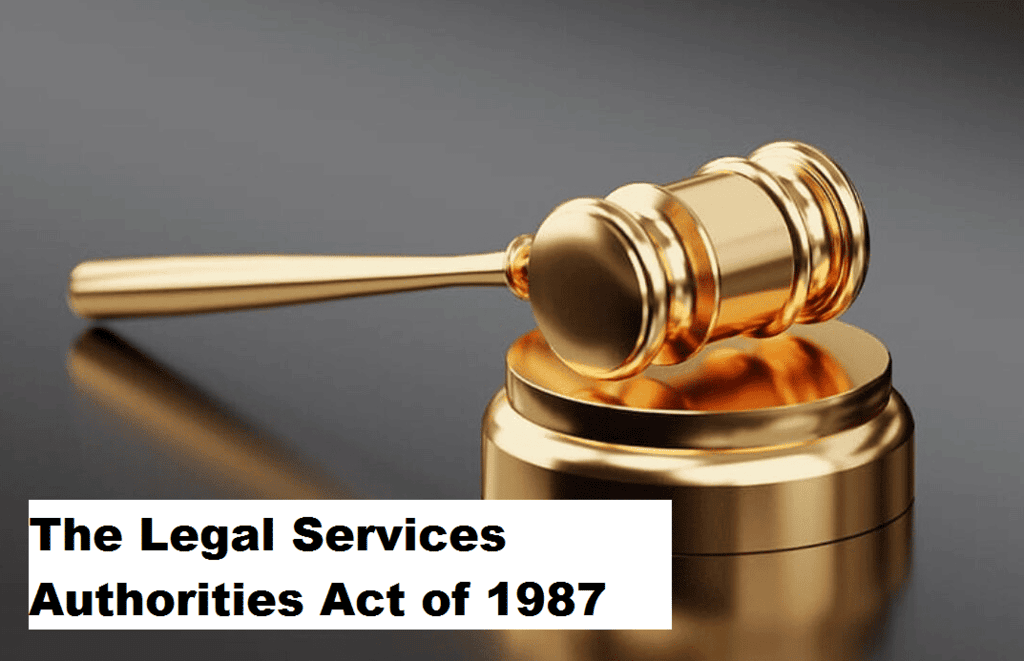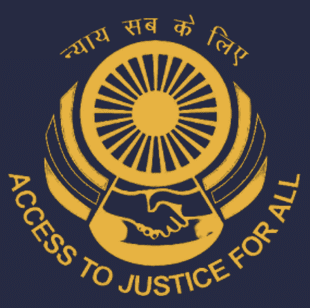Legal Services Chapter Notes | Legal Studies for Class 12 - Humanities/Arts PDF Download
Legal Aid: An Overview
Legal aid is a crucial mechanism aimed at ensuring that individuals with limited financial means have access to legal advice, counsel, and representation in court for both civil and criminal matters. The primary objective of legal aid is to bridge the gap between the rich and the poor, promoting equality and justice within society.
According to the Encyclopedia Britannica, legal aid involves providing grants or services for nominal fees to assist those who cannot afford legal representation. This concept is rooted in humanitarian considerations, as it seeks to support socially and economically disadvantaged individuals who may otherwise be denied legal assistance due to financial constraints.
In essence, legal aid is about safeguarding the right to legal support for all, regardless of their financial situation. It plays a vital role in upholding the principles of justice and equality before the law, ensuring that everyone has the opportunity to seek and obtain legal recourse when needed.

Legal Background
- In a participatory democracy, it is vital for citizens to have confidence in their judicial institutions, which ensure proper representation in the courts and uphold the principle of equality. An impartial and independent judiciary serves as the protector of individual rights in a democratic society. For citizens to trust the court system, it is essential that everyone has access to the courts when needed. Making provisions for adequate representation in the legal system for all people is a crucial aspect of the equality principle.
- Citizens accept certain limitations on their freedom in exchange for peaceful coexistence, and they expect that in the event of conflicts between citizens or between the state and citizens, there is an independent and trustworthy authority with the power to resolve disputes fairly and peacefully. It is also the duty of the state to ensure that fair and impartial justice is accessible to the poor and economically weaker sections of society, regardless of their caste, creed, religion, or geographical location, and at no cost.
- The fundamental principle of the Indian justice system is that societal stability relies on the people's ability to access the courts easily. The court system is the recognized and accepted means for peacefully resolving disputes. Denying access to the courts pushes dispute resolution into other, more violent arenas, leading to vigilantism and unrest.
- Human rights and human dignity are the foundational premises for the socio-legal basis of free legal aid. As part of human rights, it is essential to recognize the principle of equality and ensure access to justice. These foundations reflect the incorporation of legal obligations in international and regional treaties, as well as the work of monitoring bodies under these treaties or within national legal systems.
Overview of the Indian Legal System
The Indian legal system, influenced by the adversarial model from the colonial era, has faced challenges in ensuring access to justice. This system replaced the informal and accessible dispute resolution methods that were common in pre-British India. The pre-British system was more approachable as it was less technical, formal, and conducted in a language understood by the parties involved.

M.H. Hoskot v. State of Maharashtra (1978)
The Supreme Court highlighted in this case that the Indian judiciary follows the Anglo-American model of justice.
Challenges of the Adversarial System
- The adversarial system, with its formal requirements like pleadings and court fees, makes accessing justice difficult for the poor.
- Legal aid is essential to ensure equal representation, as the system tends to favor those who can afford legal assistance.
Legal Aid under the Indian Constitution
- Article 39-A:
- Inserted by the 42nd Amendment in 1976, this article mandates the state to ensure that the legal system promotes justice on an equal opportunity basis.
- It specifically calls for free legal aid to prevent denial of justice due to economic or other disabilities.
Articles 14 and 15:
- Article 14 guarantees equality before the law and equal protection of the laws to all persons within India.
- Article 15 prohibits discrimination on grounds of religion, race, caste, sex, or place of birth.
Free Legal Aid under Criminal Law
- Code of Criminal Procedure (CrPC):
- Section 304 (1) of the CrPC, 1973, stipulates that in trials before a sessions judge, if the accused cannot afford a lawyer, the court must assign one at the state's expense.
Free Legal Aid under International Law
- International Covenant on Civil and Political Rights (ICCPR):
- India is bound by the ICCPR to provide free legal assistance, as recognized by the Indian Supreme Court.
- The Court has acknowledged international legal obligations as part of Indian law when they can be harmoniously interpreted with domestic law.
Implicit References in International Treaties:
- Treaties like the International Covenant on Economic, Social and Cultural Rights (ICESCR), Convention on Elimination of Discrimination Against Women (CEDAW), and International Convention on Elimination of All Forms of Racial Discrimination imply the need for free legal services to ensure effective legal remedies and access to justice.
Declarations and Principles by the UN:
- Instruments like the Universal Declaration of Human Rights (UDHR) advocate for effective legal remedies, which include free legal services in genuine cases.
- Article 8 of the UDHR, for instance, asserts the right to an effective remedy for violations of fundamental rights, creating obligations for member states, including India.
The Legal Services Authorities Act of 1987

(i) Brief History
- The 14th Law Commission of India Report on Reform of Judicial Administration, 1958 mooted the idea of providing free legal aid to the poor by the State. The Report highlighted the responsibility of the legal community to administer legal aid schemes and the State to fund legal representation to the accused in criminal proceedings, appeals, and jails.
- In 1960, the Union Government initiated the National Legal Aid Scheme which faced financial shortages and died a natural death. In 1973, in the second phase, the Union Government constituted a committee under the chairmanship of Justice Krishna Iyer to develop a legal aid scheme for states. The Committee devised a strategy in a decentralized mode with legal aid committees in every district, state, and center.
- In 1980, a committee was constituted at the national level to oversee and supervise legal aid programmes throughout the country under the Chairmanship of Justice P.N. Bhagwati, then a Judge of the Supreme Court of India. This Committee came to be known as CILAS (Committee for Implementing Legal Aid Schemes) and started monitoring legal aid activities throughout the country.
- In 1987, the Legal Services Authorities Act was enacted to give a statutory base to legal aid programs throughout the country on a uniform pattern. Subsequently, the Parliament enacted the Legal Services Authorities Act, 1987 to provide free legal aid to certain categories of citizens.
- The preamble of the Legal Services Authorities Act, 1987 states: ‘An Act to constitute legal services authorities to provide free and competent legal services to the weaker sections of the society to ensure that opportunities for securing justice are not denied to any citizen by reason of economic or other disabilities, and to organize lok adalats to secure that the operation of the legal system promotes justice on a basis of equal opportunity.’
- The introduction of Lok Adalats added a new chapter to the justice dispensation system of this country and succeeded in providing a supplementary forum to the litigants for conciliatory settlement of their disputes. Society is rapidly progressing and the reflections of the same can be found on all fronts. Given the socio-economic changes in the last decade, the Preamble sets forth the need to address the grievances of weaker sections of society. None should be denied justice for being poor or disabled, the evils in the social hierarchy should also not affect anyone seeking justice.
(ii) Entitlement to Legal Services
- Section 12 and 13 of the Legal Services Authority Act, 1987 deals with the criteria of eligibility for legal services.
Section 12 -Criteria for giving legal services:
Every person who has to file or defend a case shall be entitled to legal services under this Act if that person is—
- member of a Scheduled Caste or Scheduled Tribe;
- victim of trafficking in human beings or begar as referred to in article 23 of the Constitution;
- woman or a child;
- person with disability as defined in clause (i) of section2 of the Persons With Disabilities (Equal Opportunities, Protection of Rights and Full Participation) Act, 1995 (1 of 1996);
- person under circumstances of underserved want such as being a victim of a mass disaster, ethnic, violence, caste atrocity, flood, drought, earthquake or industrial disaster; or
- an industrial workman; or
- in custody, including custody in a protective home within the meaning of clause (g) of section 2 of the Immoral Traffic (Prevention) Act, 1956 (104 of 1956), or in a juvenile home within the meaning of clause (j) of section 2 of the Juvenile Justice Act, 1986 (53 of 1986), or in a psychiatric hospital or psychiatric nursing home within the meaning of clause (g) of section 2 of the Mental Health Act, 1987 (14 of 1987); or
- in receipt of annual income less than rupees nine thousand or such other higher amount as may be prescribed by the State Government, if the case is before a court other than the Supreme Court, and less than rupees twelve thousand or such other higher amount as may be prescribed by the Central Government, if the case is before the Supreme Court.
Senior citizens’ eligibility for free legal aid depends on the Rules framed by the respective State Governments in this regard. In Delhi for example, senior citizens are eligible for free legal aid subject to the prescribed ceiling of annual income. Any individual above the age of 60 can apply for free legal aid/services.
Meaning and Types of Legal Services
(i) The components of Free Legal Services encompass:
- Coverage of court fees, process fees, and other charges linked to legal proceedings.
- Provision of lawyers' services during legal proceedings.
- Acquisition and distribution of certified copies of orders and documents related to legal cases.
- Assistance in preparing appeals, paper books, including document printing and translation for legal proceedings.
Litigation should be seen as a last resort, not a luxury. In criminal cases, the State initiates prosecution, and when legal aid is given to the accused, the State manages the expenses for both parties. There are criticisms that legal aid in criminal cases promotes unnecessary litigation, leading to the introduction of pre-litigation services as a new category of legal assistance for eligible individuals.
Free Legal Services also encompass offering aid and advice to beneficiaries for accessing benefits under welfare statutes and schemes established by the Central or State Government, ensuring access to justice in various ways.
(ii) Legal services can be broadly classified into two categories:
- Pre-litigation legal services.
- Post-litigation legal services.
Presently, the frequency of litigations is on the rise, which hinders the smooth functioning of justice. Previously, the focus was primarily on post-litigation assistance. However, there is now a growing recognition of the greater utility of pre-litigation legal services compared to post-litigation ones. Pre-litigation legal services comprise:
- Legal education
- Legal advice
- Legal awareness
- Pre-litigation settlement
Post Litigation services encompass all the services that an Advocate is required to provide to his client.
National Legal Services Authority
- Article 39A of the Constitution of India ensures free legal aid to the poor and weaker sections of society, promoting justice for all. Articles 14 and 22 (1) also mandate the State to guarantee equality before the law and a legal system that fosters justice based on equal opportunity for everyone.
- In 1987, the Legal Services Authorities Act was enacted by the Parliament, coming into force on November 9, 1995. This Act aimed to create a uniform nationwide framework for providing free and competent legal services to the weaker sections of society on the basis of equal opportunity.
- The National Legal Services Authority (NALSA) was established under the Legal Services Authorities Act, 1987, to oversee and evaluate the implementation of legal aid programs and to set policies and principles for making legal services available under the Act.
- Each State has a State Legal Services Authority, and every High Court has a High Court Legal Services Committee. District Legal Services Authorities and Taluk Legal Services Committees have been formed in districts and most taluks to implement NALSA's policies and directions, provide free legal services, and conduct Lok Adalats. The Supreme Court Legal Services Committee administers and implements the legal services program related to the Supreme Court of India.
- NALSA formulates policies, principles, and guidelines, and develops effective and economical schemes for State Legal Services Authorities to execute Legal Services Programmes nationwide.

State Legal Services Authorities, District Legal Services Authorities, Taluk Legal Services Committees, and similar bodies are primarily tasked with:
- Providing Free and Competent Legal Services to eligible individuals.
- Organizing Lok Adalats for amicable dispute resolution.
- Conducting legal awareness camps in rural areas.
Payment of Fee
- The Regulations outline the guidelines for paying fees to panel lawyers, which should align with State regulations. Payments will be made promptly upon receipt of completion of proceedings. The Regulations also suggest periodically revising the honorarium for various services provided by panel lawyers in legal aid cases.
Senior Advocates
- The services of senior advocates may be utilized in cases of significant public importance or when there is a serious threat to the life and liberty of the applicant. This decision can be made by the Chairman of the legal services institution.
The Legal Services Authorities (Amendment) Act, 2002

The Parliament of India acknowledged that legal services focused on litigation alone were not achieving the desired outcomes. To promote pre-litigation legal services, particularly in the realm of public utility services, the Parliament made amendments to the Legal Services Authorities Act, resulting in the Legal Services Authorities (Amendment) Act, 2002.
The amendment aimed to introduce specific changes to the Legal Services Act of 1987, with a focus on:
- Establishing permanent Lok Adalats to resolve disputes related to public utility services at the pre-litigation stage.
- Facilitating pre-litigation conciliation and settlement concerning public utility services.
What is a Public Utility Service?
A public utility service includes various essential services such as:
- Transport services for passengers or goods by air, road, or water.
- Postal, telegraph, or telephone services.
- Supply of power, light, or water to the public by any establishment.
- Public conservancy or sanitation systems.
- Hospital or dispensary services.
- Insurance services.
Additionally, any service that the Central or State Government declares as a public utility service in the public interest through a notification is included.
Permanent Lok Adalat: Key Provisions
- Role of Permanent Lok Adalat: The Permanent Lok Adalat plays a crucial role in facilitating conciliation proceedings by assisting parties in reaching an amicable settlement in an independent and impartial manner.
- Duty of Parties: All parties involved in the application are expected to cooperate in good faith with the Permanent Lok Adalat and comply with its directions to produce evidence and relevant documents.
- Settlement Agreement: If the parties reach an agreement, they must sign the settlement agreement, and the Permanent Lok Adalat will issue an award based on the terms of the agreement.
- Decision in Absence of Agreement: If the parties cannot reach an agreement, the Permanent Lok Adalat will make a decision on the dispute.
- Guiding Principles: The Permanent Lok Adalat is guided by principles of natural justice, objectivity, fair play, equity, and other principles of justice while conducting conciliation proceedings or deciding a dispute. It is not bound by the Code of Civil Procedure, 1908, or the Indian Evidence Act, 1872.
- Finality of Award: The award issued by the Permanent Lok Adalat is final and is deemed to be a decree of a civil court.
Other Initiatives
- Legal Service Mobile App: NALSA has introduced the Legal Services Mobile App on Android and iOS platforms to ensure equitable access to justice by facilitating easy access to legal aid for common citizens.
- DISHA Scheme: The Department of Justice has launched the DISHA scheme, which aims to provide a comprehensive and systemic solution for access to justice across India. This scheme, implemented from 2021 to 2026, merges various Access to Justice Programmes and scales them up to a national level.
Circumstances for Denying or Withdrawing Legal Aid
Legal Aid can be either denied or withdrawn under specific circumstances outlined in the Legal Services Authorities Act, 1987.
Denial of Legal Aid:
Legal Aid may be denied if the applicant is found ineligible as per Section 12 of the Legal Services Authorities Act, 1987.
Withdrawal of Legal Aid:
Legal Aid can be withdrawn under the following circumstances:
- If the aided person, who applied under the income category, is found to possess sufficient means.
- If the aided person obtained legal services by misrepresentation or fraud.
- If the aided person does not cooperate with the Legal Services Authority/Committee or with the legal services advocate.
- If the aided person engages a legal practitioner other than the one assigned by the Legal Services Authority/Committee.
- In the event of the death of the aided person, except in civil proceedings where the right or liability survives.
- If the application for legal service or the matter in question is found to be an abuse of the process of law or of legal services.
Legal Aid in the Context of Social Justice and Human Rights
- Many people are denied their human rights simply because they cannot afford the costs involved in enforcing those rights. It is not enough to discuss human rights from an elitist perspective; to achieve social justice and make human rights meaningful, legal aid is essential. Human rights that cannot be enforced due to poverty are meaningless and worthless. The right to access justice is fundamental to social justice. Access to justice is, in fact, one of the most basic human rights, and without it, the realization of many other human rights becomes difficult. The right to legal aid has evolved through judicial creativity for the benefit of poor individuals.
- It is neither possible nor appropriate to separate the right to legal aid from the broader spectrum of human rights. Simply declaring and passing resolutions about human rights is insufficient; guaranteeing the enforcement of these rights is equally crucial. Therefore, it is not incorrect to assert that the right to legal aid is paramount among human rights. Human rights are mere empty declarations without legal aid; they hold value only when enforced. The right to legal aid empowers the realization of these human rights and makes them meaningful for the less fortunate.
- In the current legal systems of most countries, justice is not freely given but sold. Those seeking justice must pay for legal counsel, court fees, and other associated costs. Poverty acts as a barrier to obtaining justice, and as a result, the poor suffer from social injustice. Legal aid is a means of providing social justice to all and is an integral part of human rights that requires urgent attention. Without it, there is a risk that the patience of the poor may run out, jeopardizing world peace.
|
98 videos|69 docs|30 tests
|
FAQs on Legal Services Chapter Notes - Legal Studies for Class 12 - Humanities/Arts
| 1. What is the purpose of the Legal Services Authorities Act of 1987 in India? |  |
| 2. What are the different types of legal services provided under the Indian legal system? |  |
| 3. What are the circumstances under which legal aid can be denied or withdrawn in India? |  |
| 4. How did the Legal Services Authorities (Amendment) Act, 2002 enhance legal aid services in India? |  |
| 5. How does legal aid contribute to social justice and human rights in India? |  |





















